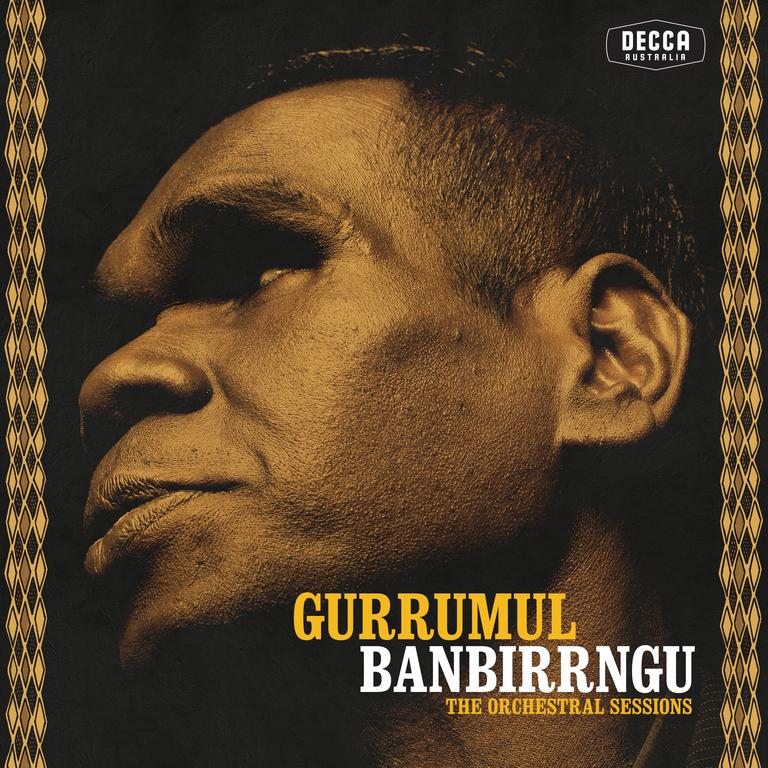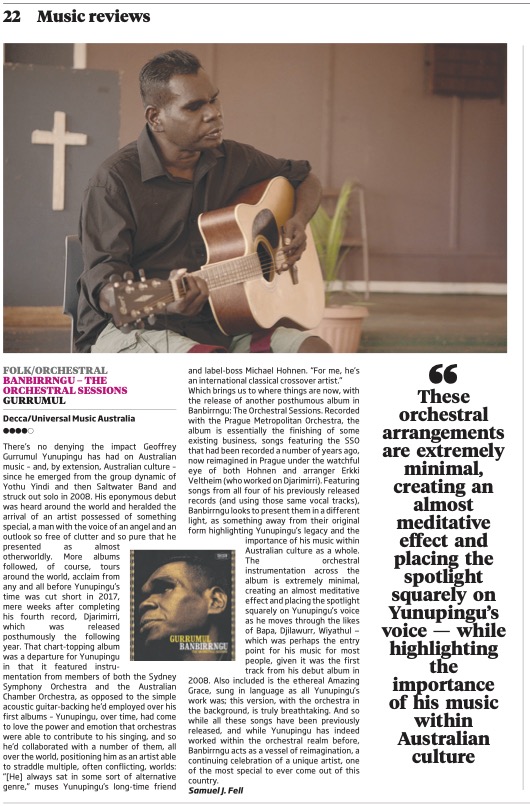
FOLK/ORCHESTRAL
Banbirrngu – The Orchestral Sessions
Gurrumul
Decca/Universal Music Australia
4 stars
There’s no denying the impact Geoffrey Gurrumul Yunupingu has had on Australian music – and, by extension, Australian culture – since he emerged from the group dynamic of Yothu Yindi and then Saltwater Band and struck out solo in 2008. His eponymous debut was heard around the world and heralded the arrival of an artist possessed of something special, a man with the voice of an angel and an outlook so free of clutter and so pure, he presented as almost otherworldly.
More albums followed of course, tours around the world, acclaim from any and all before Yunupingu’s time was cut short in 2017, mere weeks after completing his fourth record, Djarimirri, which was released posthumously the following year. That album was a departure for Yunupingu in that it featured instrumentation from members of both the Sydney Symphony Orchestra and the Australian Chamber Orchestra, as opposed to the simple acoustic guitar-backing he’d employed over his first albums – Yunupingu, over time, had come to love the power and emotion that orchestras were able to contribute to his singing, and so he’d collaborated with a number of them, all over the world, positioning him as an artist able to straddle multiple, often conflicting, worlds: “[He] always sat in some sort of alternative genre,” muses Yunupingu’s long-time friend and label-boss, Michael Hohnen. “For me, he’s an international classical crossover artist.”
Which brings us to where things are now, with the release of another posthumous album in Banbirrngu: The Orchestral Sessions. Recorded with the Prague Metropolitan Orchestra, the album is essentially the finishing of some existing business, songs featuring the SSO that had been recorded a number of years ago, now reimagined in Prague under the watchful eye of both Hohnen and arranger Erkki Veltheim (who worked on Djarimirri). Featuring songs off all four of his previously released records (and using those same vocal tracks), Banbirrngu looks to present them in a different light, as something away from their original form highlighting Yunupingu’s legacy and the importance of his music within Australian culture as a whole.
The orchestral instrumentation across the album is extremely minimal, creating an almost meditative effect and placing the spotlight squarely on Yunupingu’s voice as he moves through the likes of Bapa, Djilawurr, Wiyathul (perhaps most people’s intro to his music, given it’s the first track off his first album), and the ethereal Amazing Grace, sung in language as all Yunupingu’s work was, which with the orchestra in the background is truly breathtaking. And so while all these songs have been previously released, and while Yunupingu has indeed worked within the orchestral realm before, Banbirrngu acts as a vessel of reimagination, a continuing celebration of one of the most unique and special artists to ever come out of this country.
Samuel J. Fell

